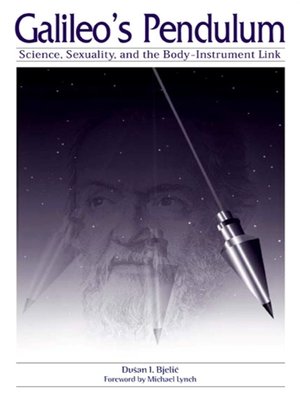Galileo's Pendulum
ebook ∣ Science, Sexuality, and the Body-Instrument Link · SUNY series in Science, Technology, and Society
By Dusan I. Bjelic

Sign up to save your library
With an OverDrive account, you can save your favorite libraries for at-a-glance information about availability. Find out more about OverDrive accounts.
Find this title in Libby, the library reading app by OverDrive.



Search for a digital library with this title
Title found at these libraries:
| Loading... |
Drawing on the theories of Michel Foucault, Judith Butler, and others who have written on the history of sexuality and the body, Galileo's Pendulum explores how the emergence of the scientific method in the seventeenth century led to a de-emphasis on the body and sexuality. The first half of the book focuses on the historical modeling of the relation between pleasure and knowledge by examining a history of scientific rationality and its relation to the formation of the modern scientist's subjectivity. Relying on Foucault's history of sexuality, the author hypothesizes that Galileo's pendulum, as an extension of mathematics and the body, must have been sexualized by schemes of historical representation to the same extent that such schemes were rationalized by Galileo. The second half of the book explores the problems of scientific methodology and attempts to return the body in an explicit way to scientific practice. Ultimately, Galileo's Pendulum offers a discursive method and praxis for resexualizing the history of Galilean science.






